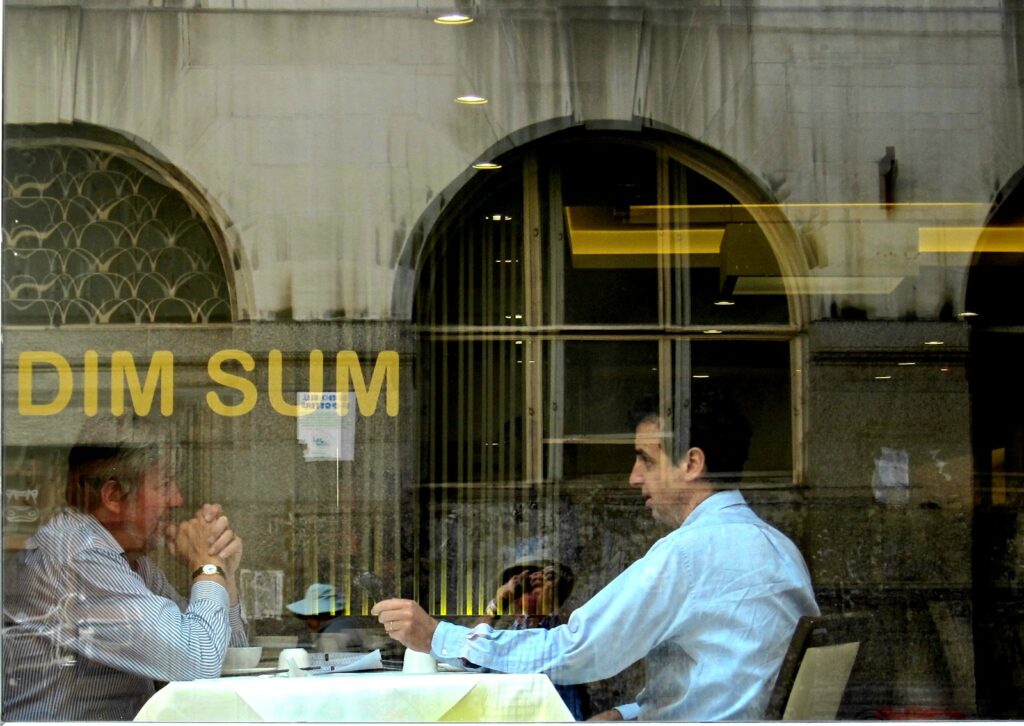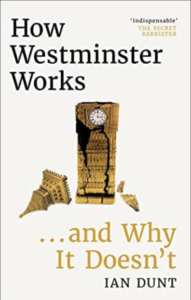Business lunch?
Quote of the Day
“Falsehood flies, and the Truth comes limping after it; so that when Men come to be undeceiv’d, it is too late; the Jest is over, and the Tale has had its Effect . . .”
- Jonathan Swift
Musical alternative to the morning’s radio news
Liam O’Flynn, Seán Keane, Paddy Glackin, Arty McGlynn & Paul Brady | Gradam Ceoil TG4 2007
I still remember vividly the first time I heard Liam play — in a crowded room in an hotel on the coast of Galway Bay one Summer evening. I was mesmerised then, and am still whenever I come on a recording of him and his peers in action. There’s something about his calm, still impassivity and his absolute mastery of his instrument.
Long Read of the Day
An interview with Dan Wang
For years, one of the great treats in following the geopolitical aspects of technology was Dan Wang’s Annual Letter from China. But now he has left China and returned to the US, taking up a position at the Yale Law school. So Noah Smith (who had advised him years ago to make the move to China) booked a long interview with him, of which this is an edited transcript.
It’s fascinating. Here’s a sample:
Smith: What’s different about semiconductors and advanced aviation? Why has China not been as successful in catching up in those sectors?
Noah: I think there has been a consistent pattern of Chinese successes and failures. Any technology that demands the complex integration of different scientific areas is challenging for Chinese firms. Semiconductors bring together electrical engineering, chemistry, computer science, and more; aviation is the integration of aerodynamics, materials science, mechanical engineering, etc. China’s scientific capabilities have steadily risen, but I would say it’s still fairly weak. No surprise, perhaps, that Chinese firms weren’t able to produce mRNA vaccines, since its scientific establishment is unused to puttering around the fringes of new fields.
On the other hand, for any technology where the science is mature, and the complexity lies more with the manufacturing process, China tends to be strong. Take renewable technologies like solar photovoltaics or EV batteries. The science of turning light into electricity and power storage are pretty well understood. But Chinese firms have been able to outbuild their foreign competition (with plenty help from government support) in creating high-performing products. Putting together a battery, for example, involves around ten steps—from cell filling to final sealing—that demand perfect handoff at each stage. Chinese firms are really good at this, which they learned from the highly-demanding electronics supply chain.
And here the US tends to be weak. American manufacturers aren’t good at making products of high intricacy at high volume. And it sometimes trips over simple products too. It’s puzzling to me that American factories weren’t able to quickly retool to turn out masks and other personal protective equipment in the early days of 2020. There’s something quite strange about the US where it is able to make super-advanced products like AI, jet engines, semiconductor production equipment, but can’t build basic infrastructure or simple products…
Do read it. I think he should now start doing a Letter from America every year, aimed at Chinese audiences.
Books, etc.
Diane Coyle has been reading Ian Dunt’s book. Her brisk review of it is characteristically concise — as is the headling over it: “Competent government? Read and weep”.
It’s an excellent book, forensic in its analysis of the operations of the UK’s central government – and that is exactly why it’s so deeply depressing and angry-making. The chapters cover both the political processes – selection of MPs, role of special advisers, the imbalance of power between the Executive and Parliament, lobby journalism – and the official aspects – an amateur-by-design civil service that’s becoming ever-less capable, increasing tensions between ministers and officials, the dire impact of the Treasury. The book is even handed, pointing out that many of the trends that make for ineffective government today started in the 1990s or before, and were accelerated significantly by New Labour, before being turbo-charged by the succession of Conservative governments that have followed.
The key takeaways, she writes are:
It would actually be a bad idea to reform the House of Lords as it’s the only part that semi-functions
None of the actors in UK national politics have any incentive to change anything – for instance, proportional representation would be excellent but neither Tories nor Labour want it
I already thought more devolution to sub-national levels is desirable, and now think it’s the only hope of introducing any competence into UK government (although many people in Whitehall and Westminster have the cheek to talk about a lack of capacity at local level).
And, she adds,
If you really want to get angry about the pervasive incompetence of the government, just read the chapter on Afghanistan. Shameful.
Welcome to ‘global Britain’.
I might just have to buy the book, even though I suspect that Dominic Cummings loves it.
My commonplace booklet
War criminal turns 100 this week
From Mother Jones:
In early 1969, shortly after Nixon moved into the White House and inherited the Vietnam War, he, Kissinger, and others cooked up a plan to secretly bomb Cambodia, in pursuit of enemy camps. With the perversely-named “Operation Breakfast” launched, White House chief of staff H.R. “Bob” Haldeman wrote in his diary, Kissinger and Nixon were “really excited.” The action, though, was of dubious legality; the United States was not at war with Cambodia and Congress had not authorized the carpet-bombing, which Nixon tried to keep a secret. The US military dropped 540,000 tons of bombs. They didn’t just hit enemy outposts. The estimates of Cambodian civilians killed range between 150,000 and 500,000.
I often think of Tom Lehrer’s crack that “Political satire became obsolete when Henry Kissinger was awarded the Nobel peace prize”.
This Blog is also available as a daily email. If you think that might suit you better, why not subscribe? One email a day, Monday through Friday, delivered to your inbox. It’s free, and you can always unsubscribe if you conclude your inbox is full enough already!


